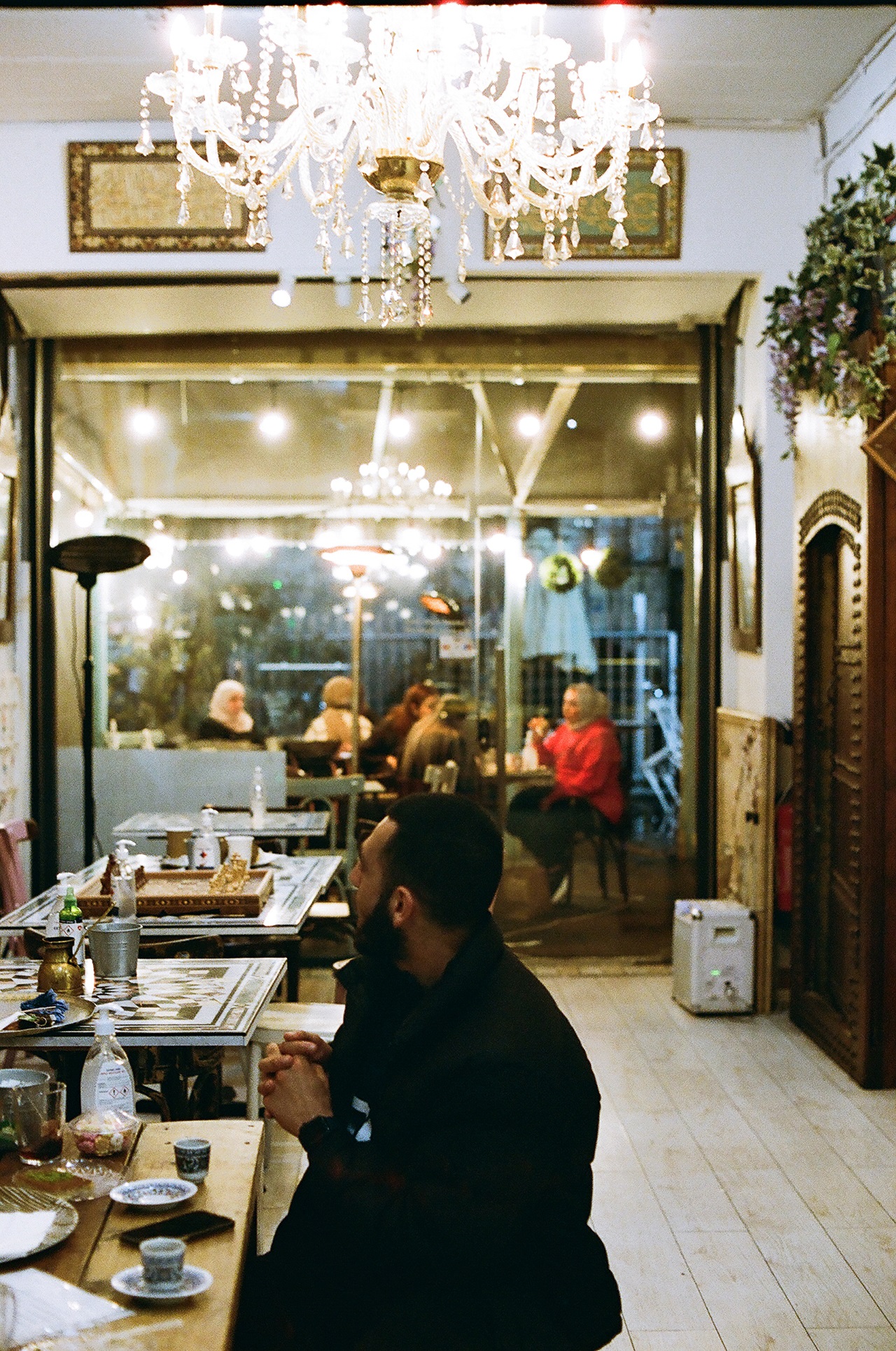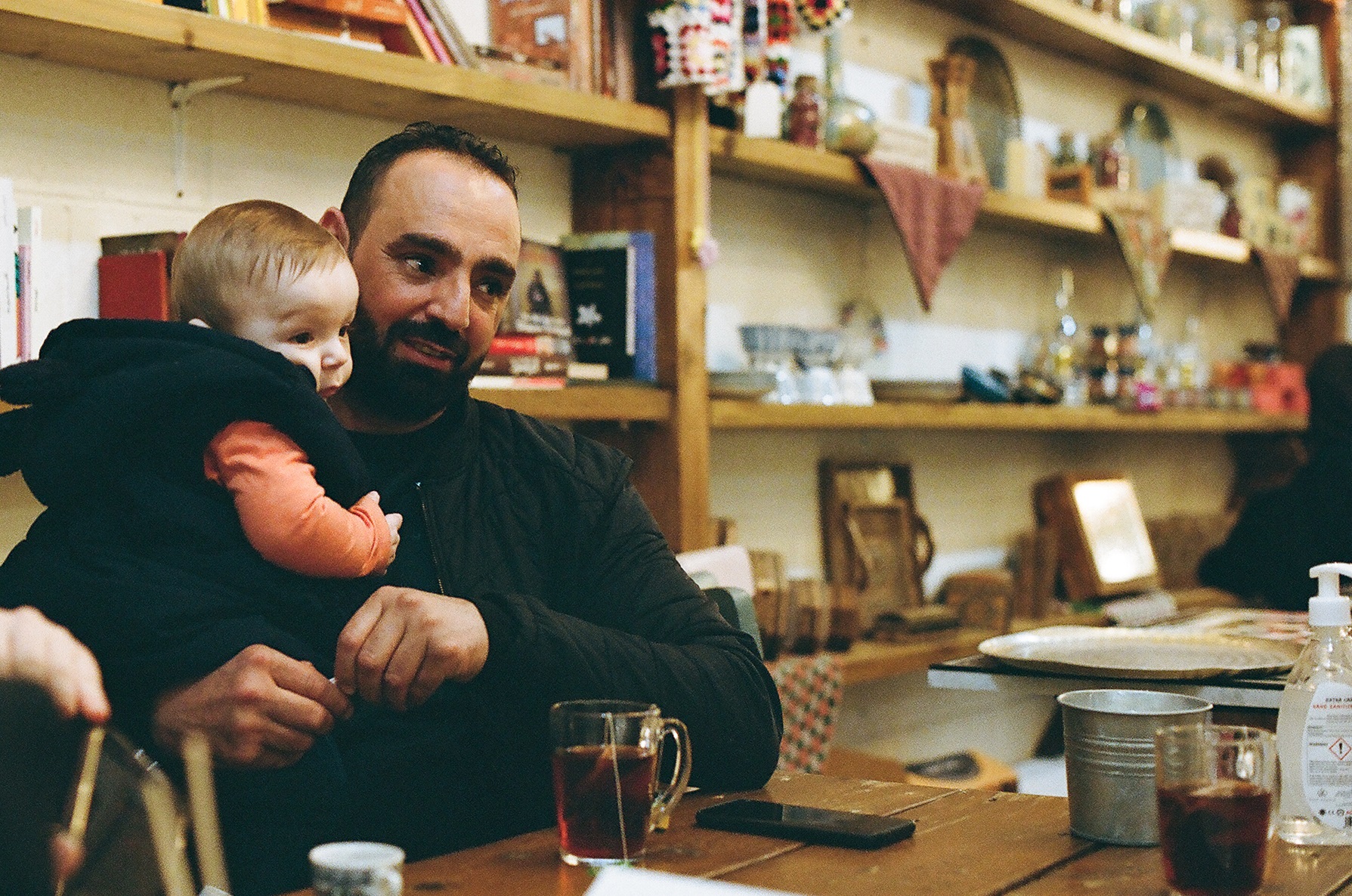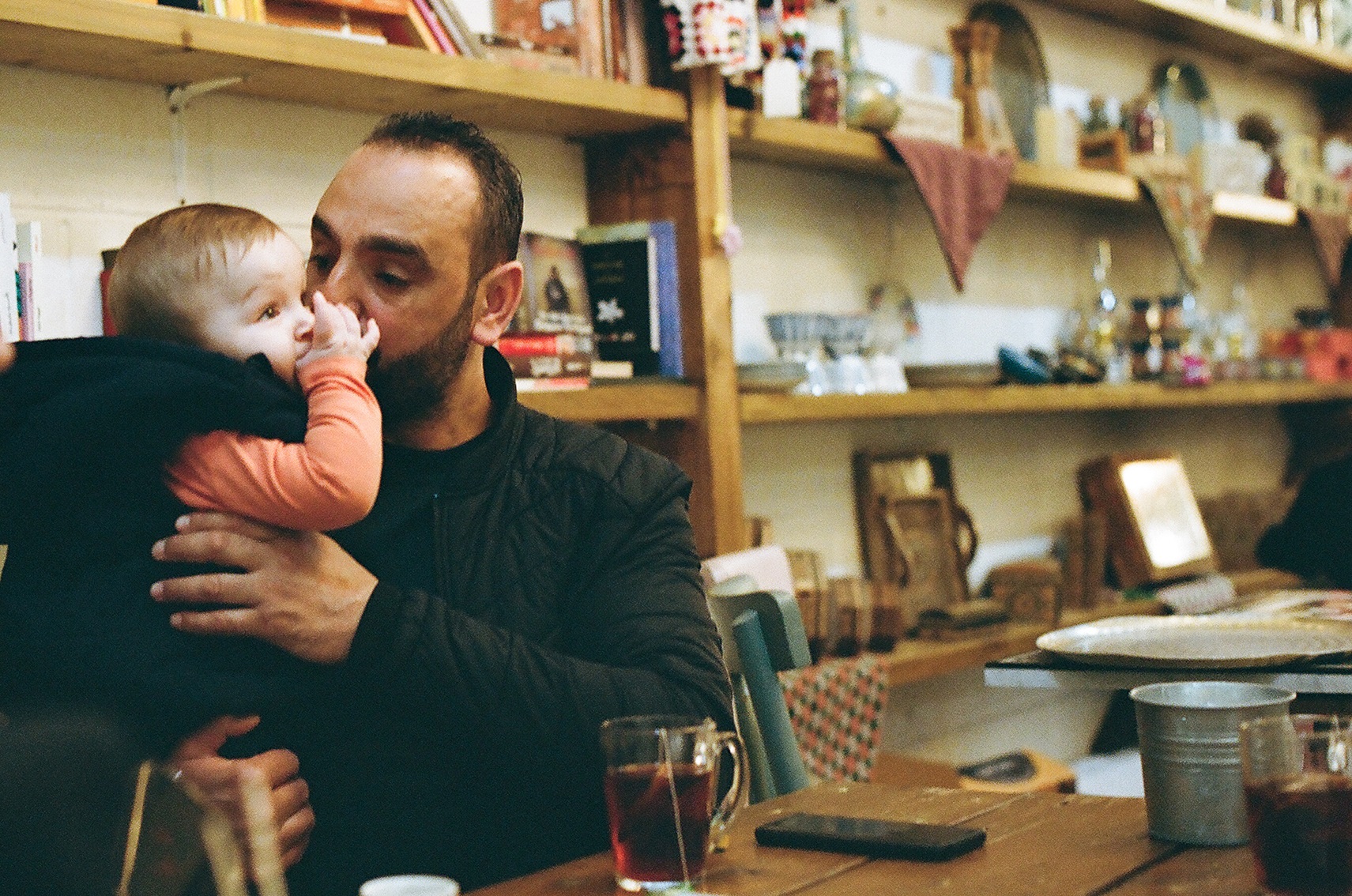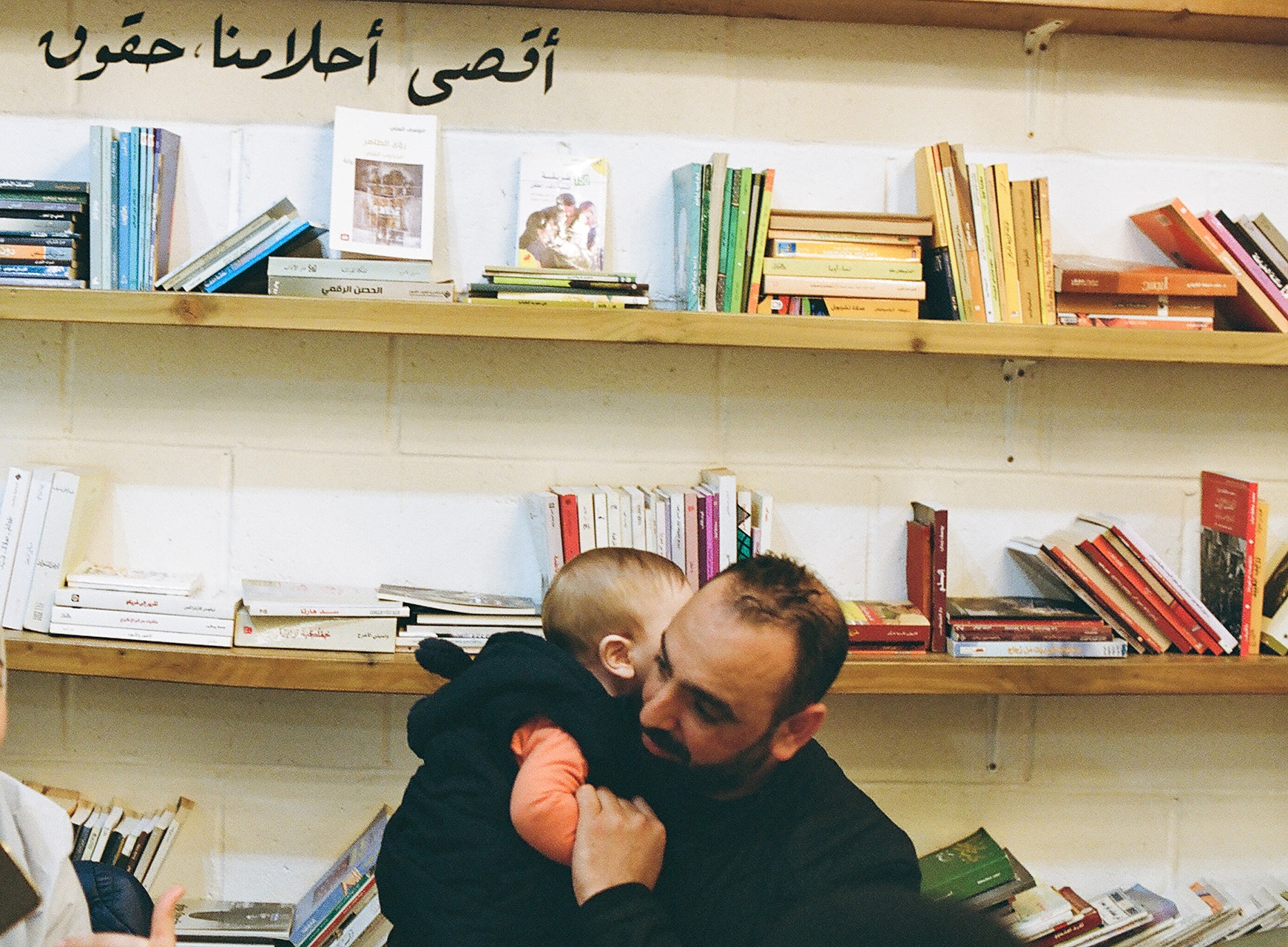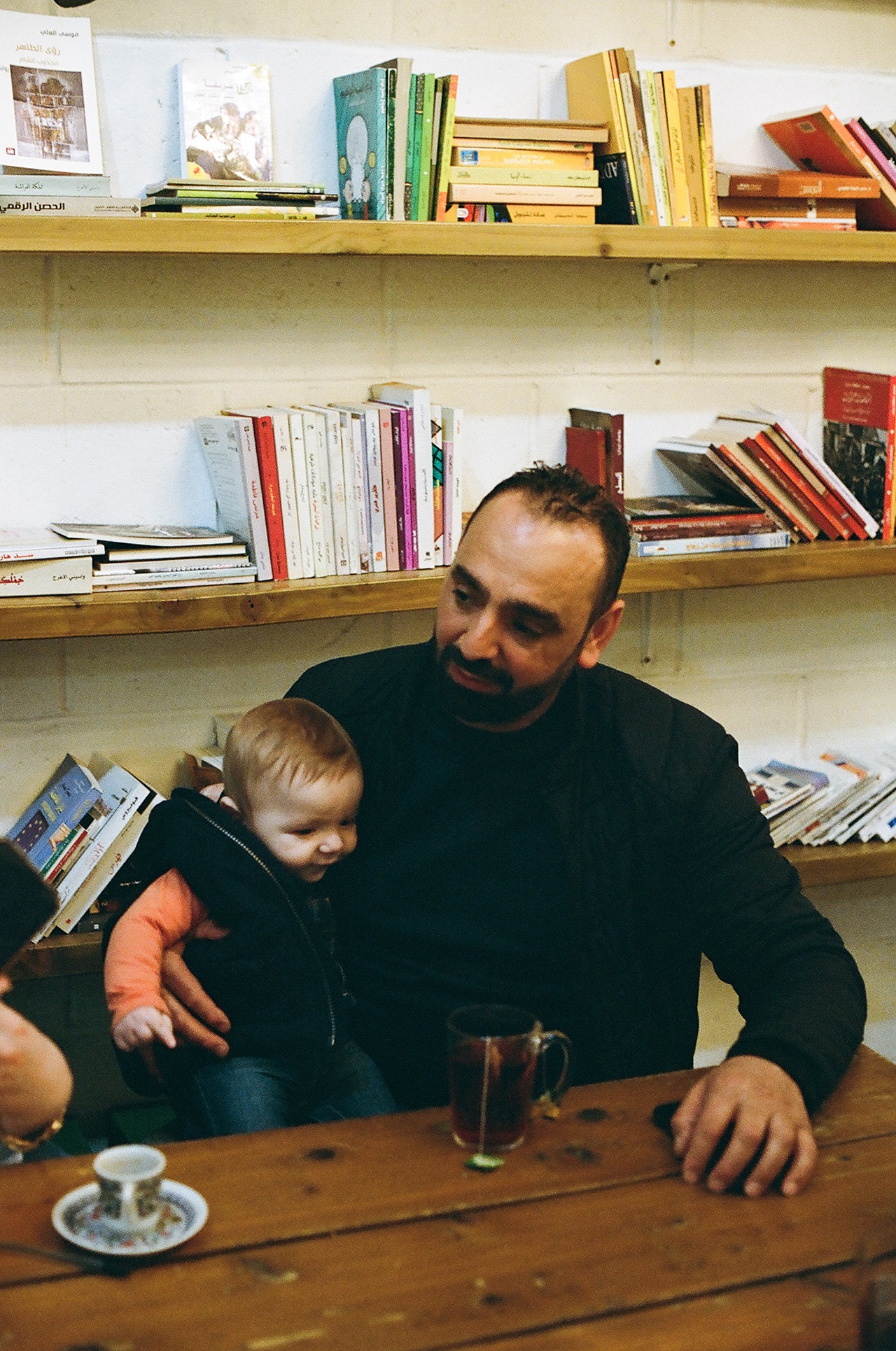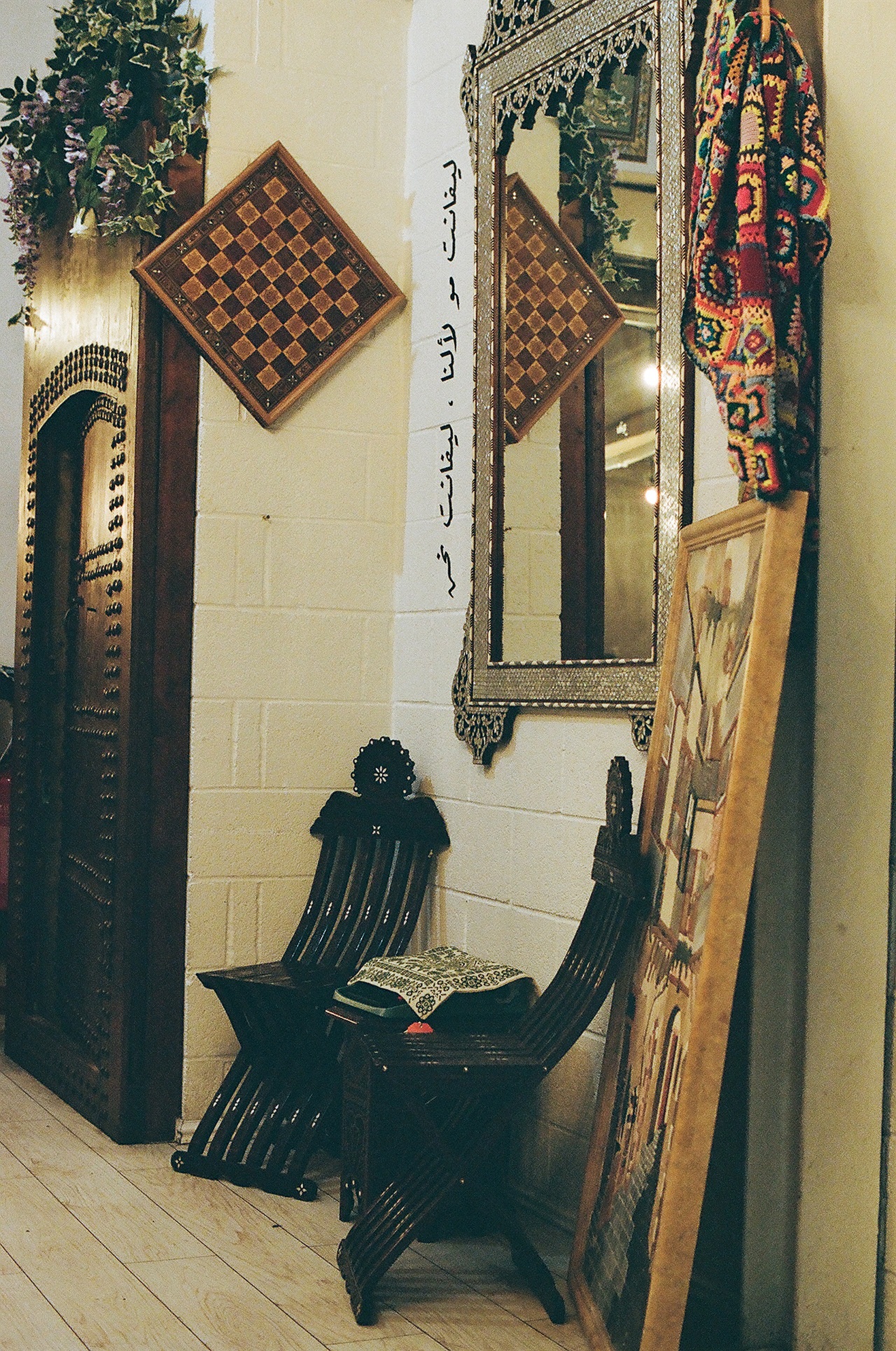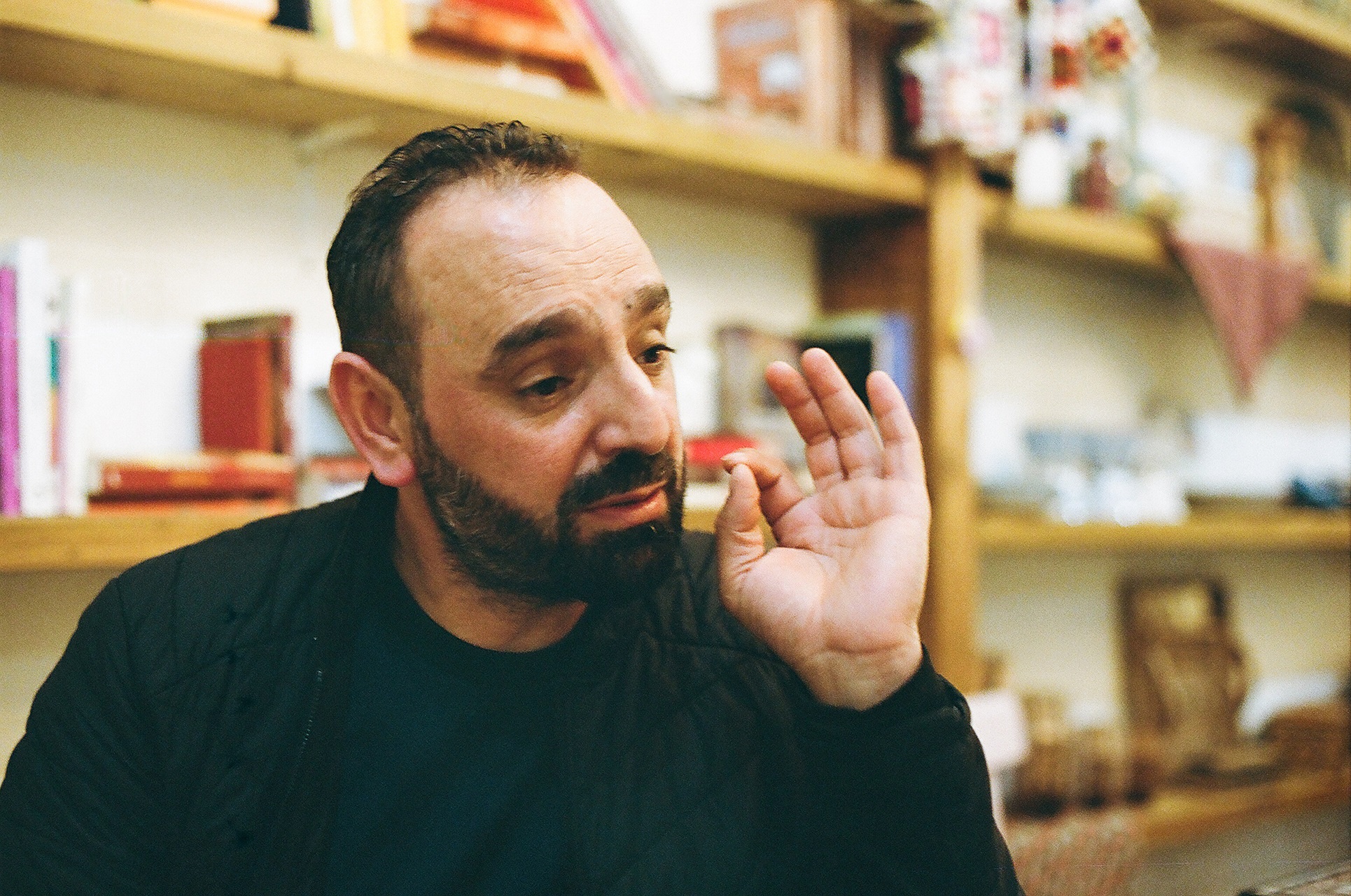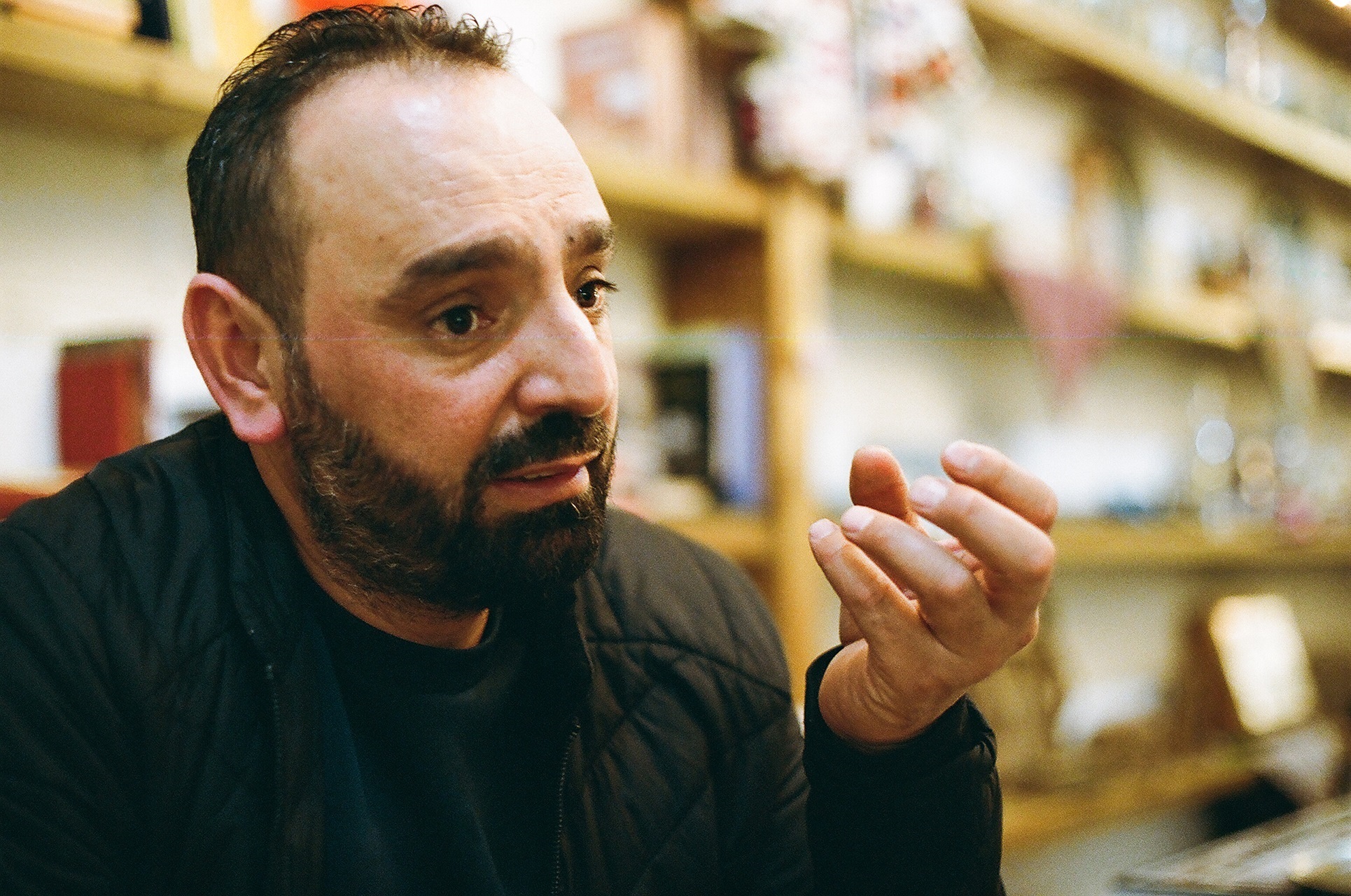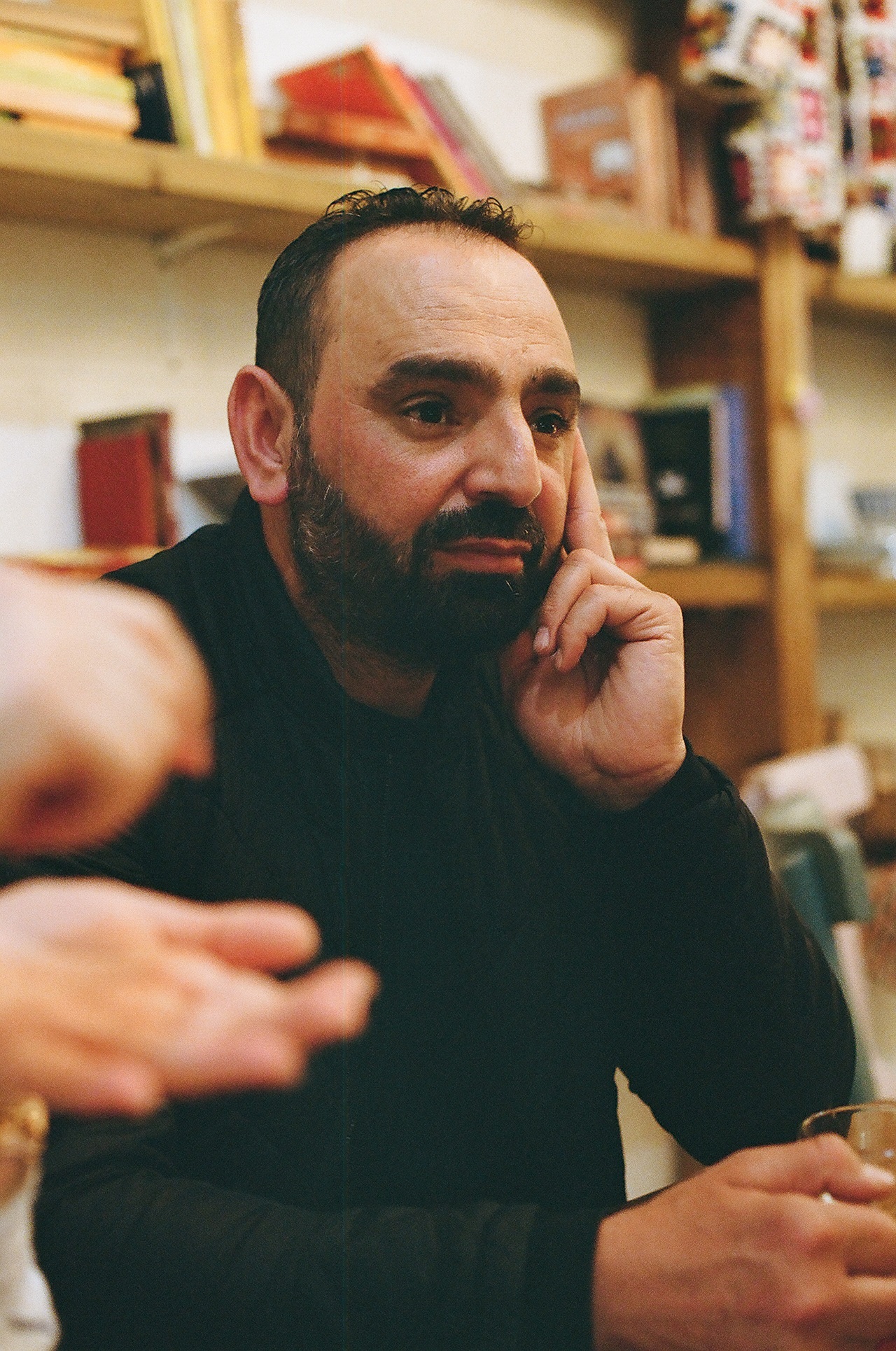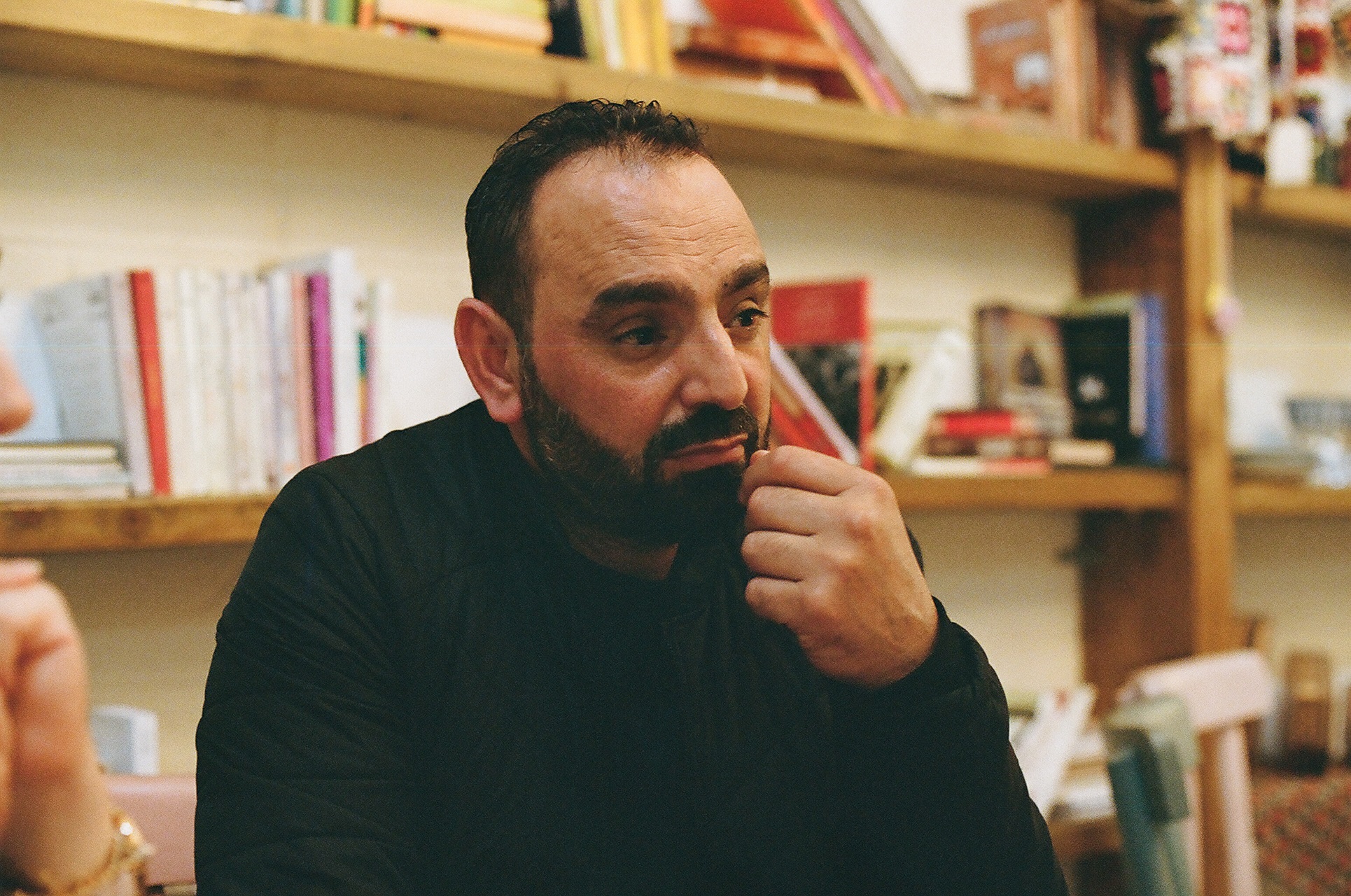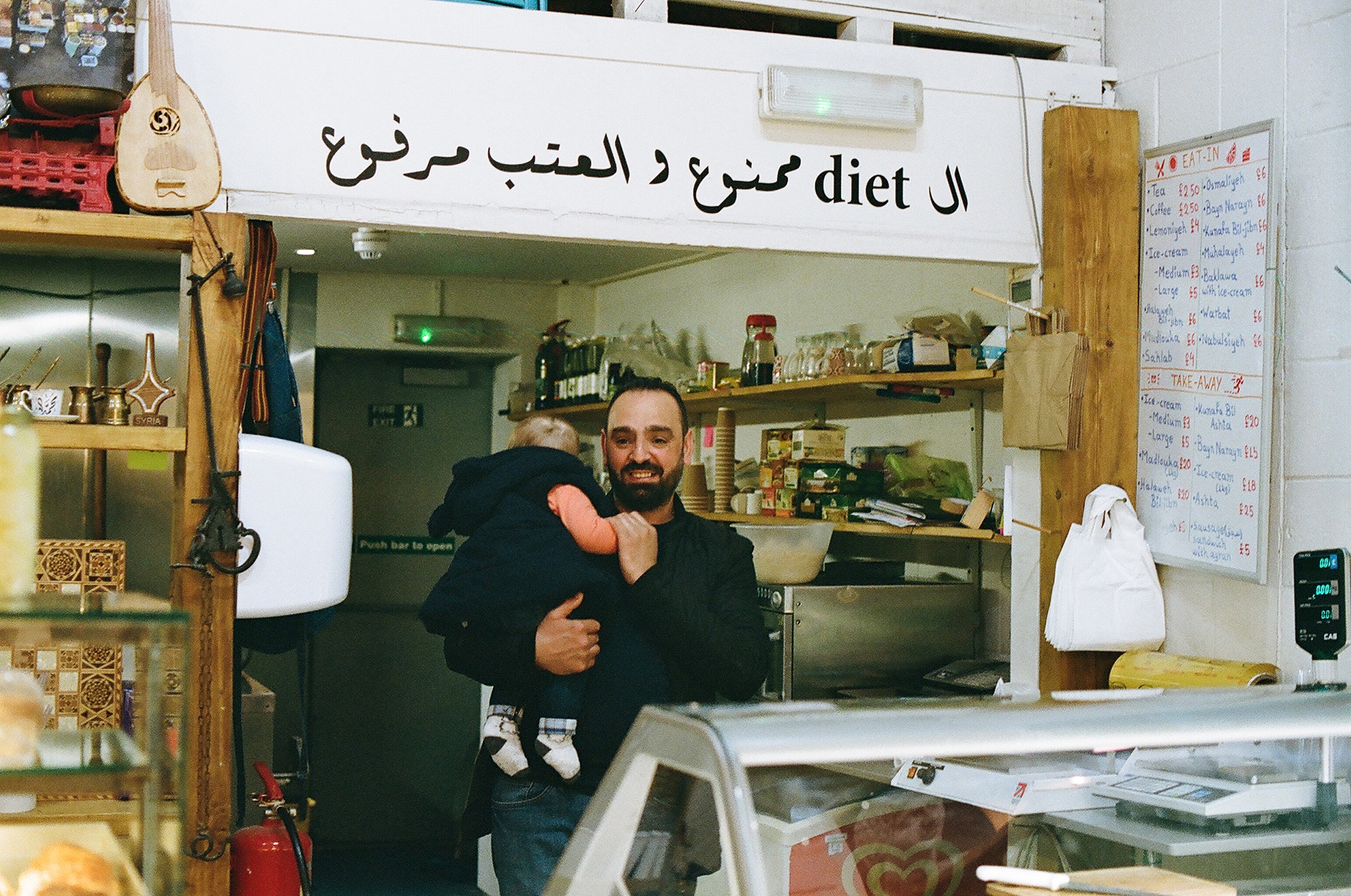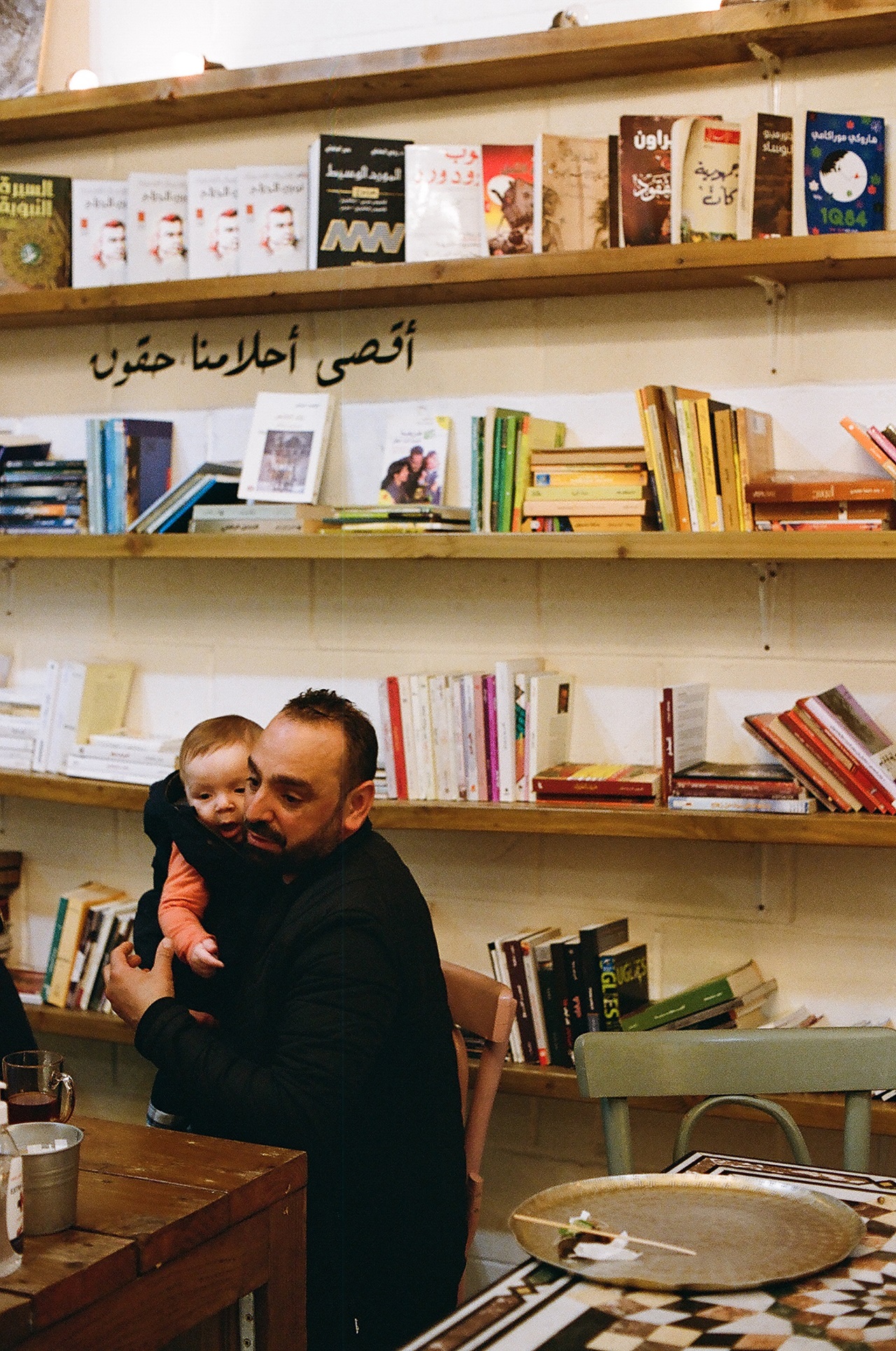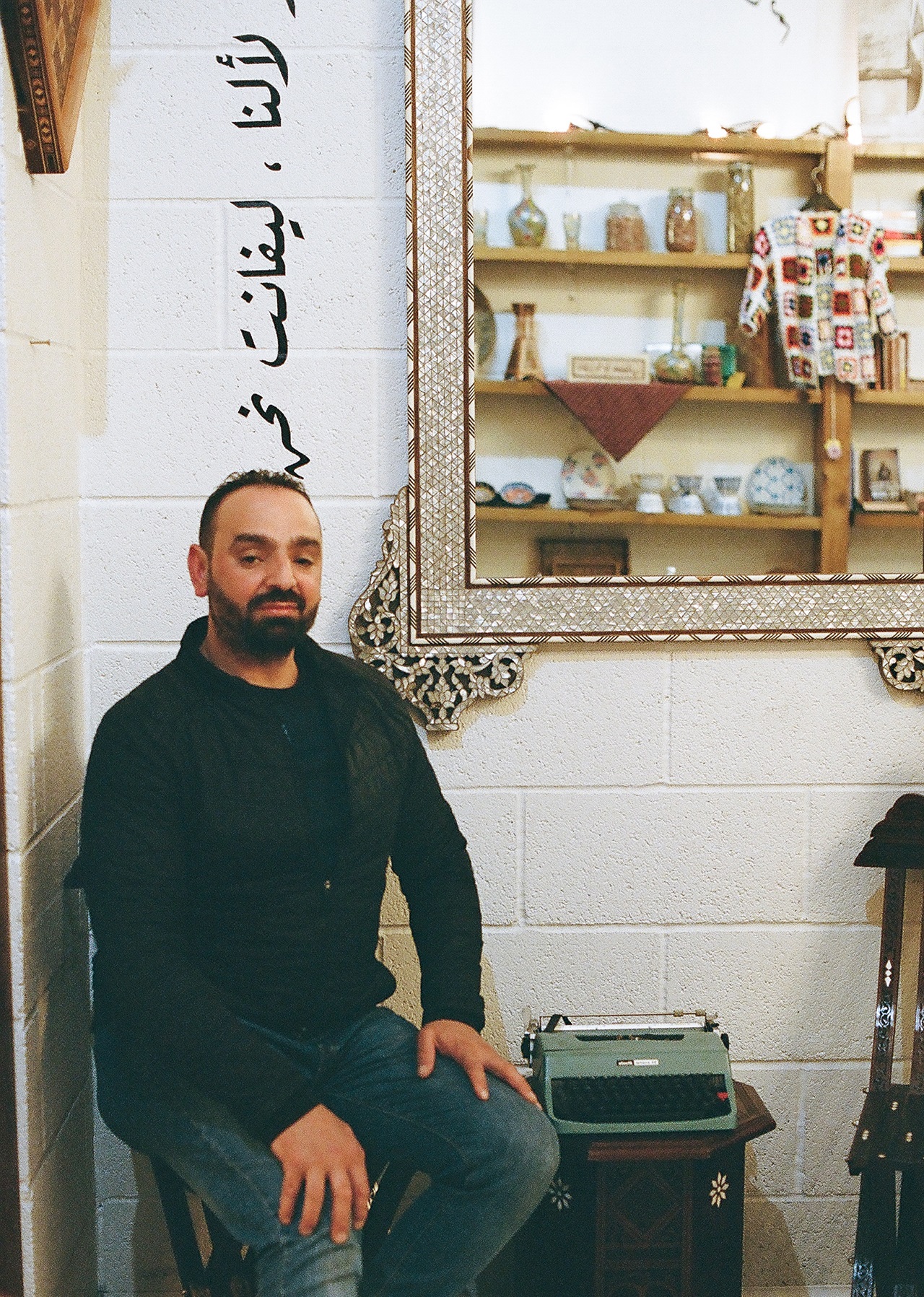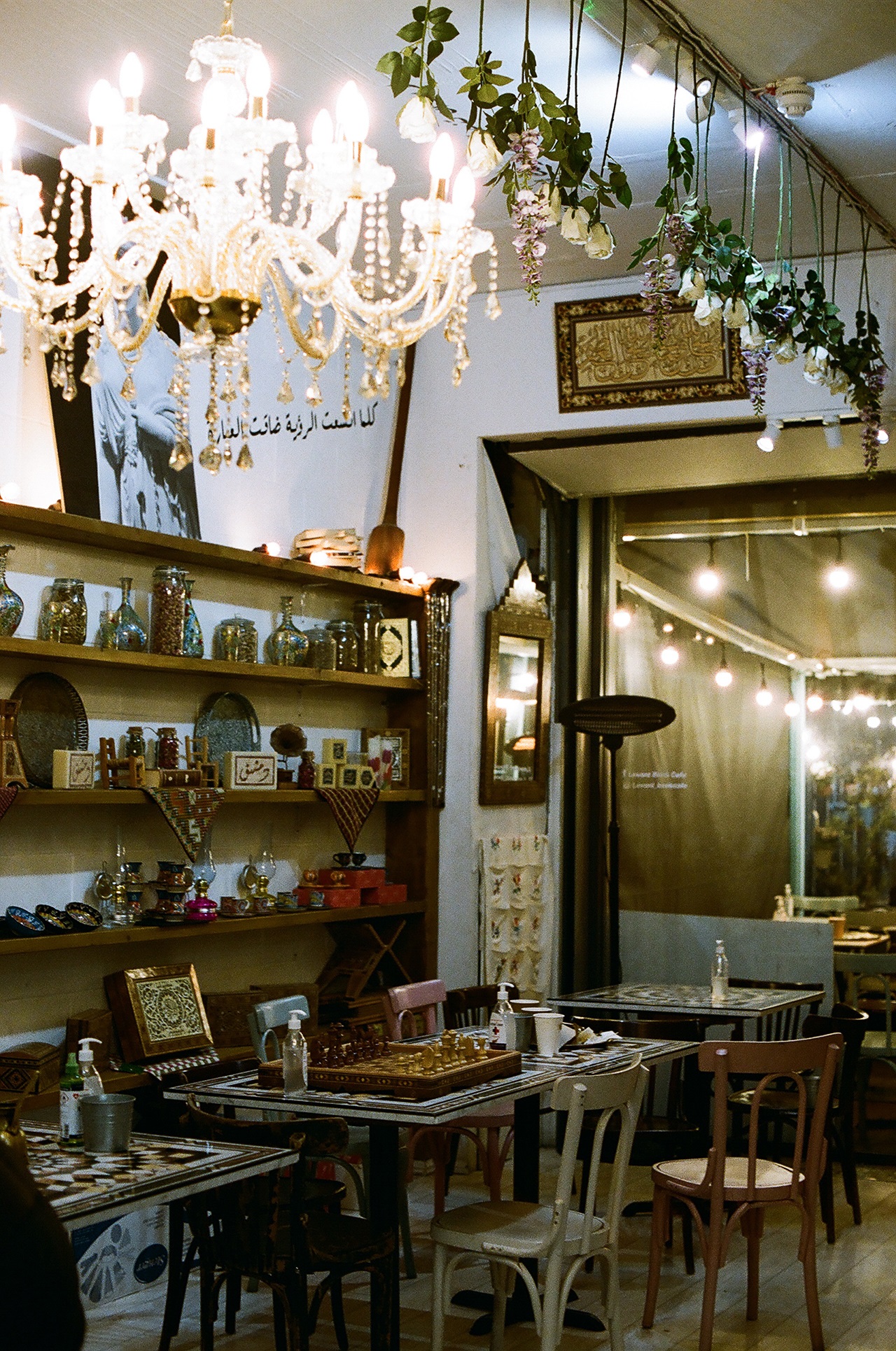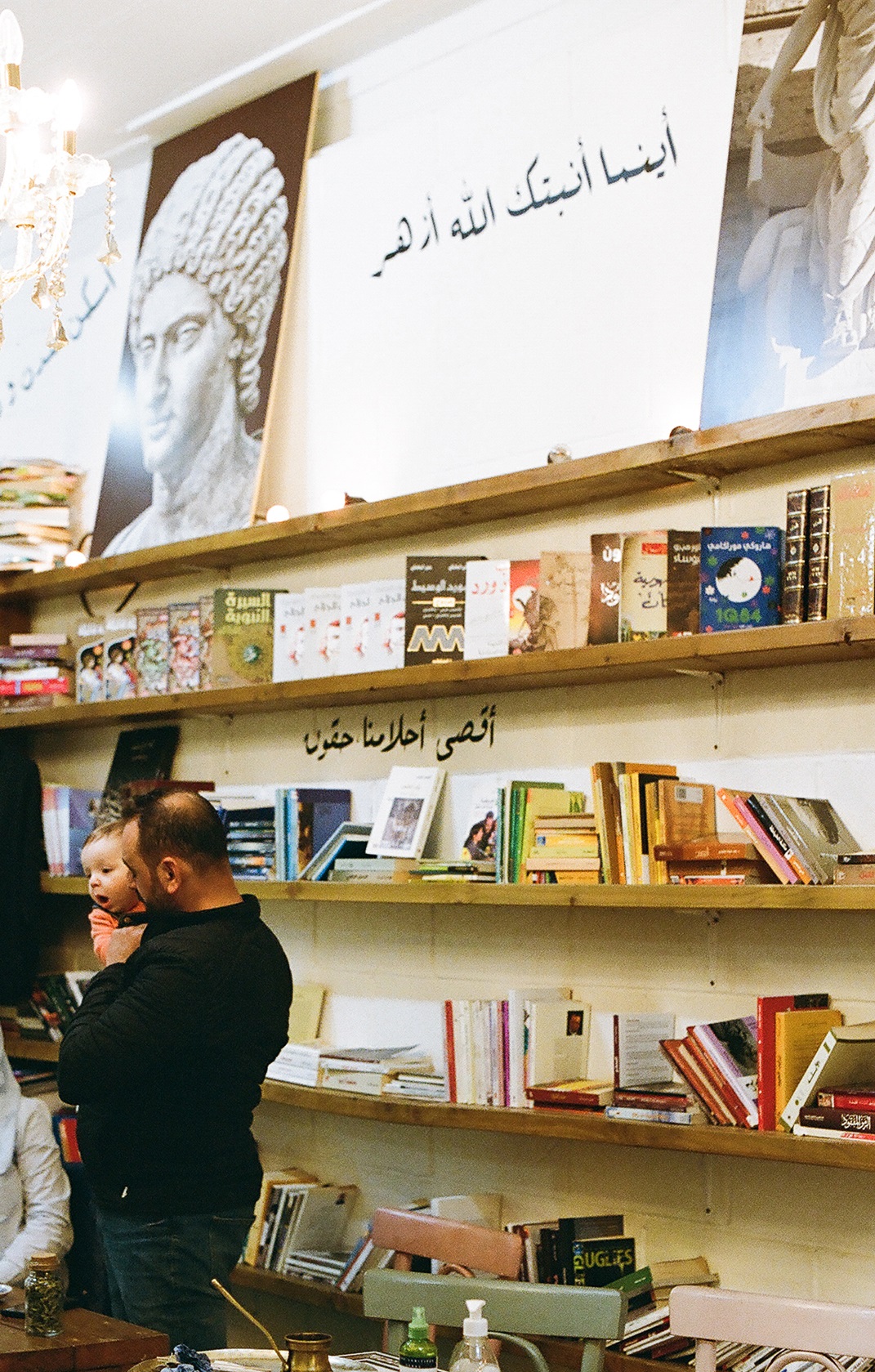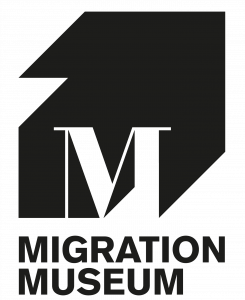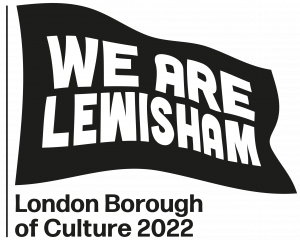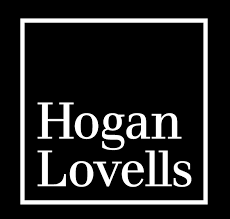Levant Book Café
Sameh Asami
Interview: Nabil Al-Kinani
Courtesy of Pipe Dreams, Shubbak Festival 2021
Our family was forced to leave Damascus during the 2011 Syrian conflict. The experience of leaving a place that we loved left us with a profound sense of longing for our home. But we still have our recollections. The Levant Book Café is the physical manifestation of these memories.
We set out to create a small corner of Damascus that could hold these memories dear: the colours of the stained glass windows we grew up running past on our way to school, the books we used to see at Souk Al-Hamidiyeh, and the mosaic decorations we would admire at the Umayyad Mosque. The café is an archive of Syrian history as well as a space that preserves and values Levantine societal norms and customs.
What’s the cultural origins of Levant Book Cafe?
Levant Book Cafe represents the Middle Eastern area of Greater Damascus, but includes the Levantine cultures of Jordan, Iraq, Lebanon and Palestine too.
What’s the story of Levant Book Cafe?
Levant Book Cafe is currently three years old, but the concept was initially created approximately 12 years old. Our good friend, Muhammad Ramadan, had experience in creating a number of Middle Eastern spaces in the past, such as Ramadan’s Tent and a dessert shop on Edgware Road. We set out to create a space to get away from the busy London streets, and that makes us feel like home.
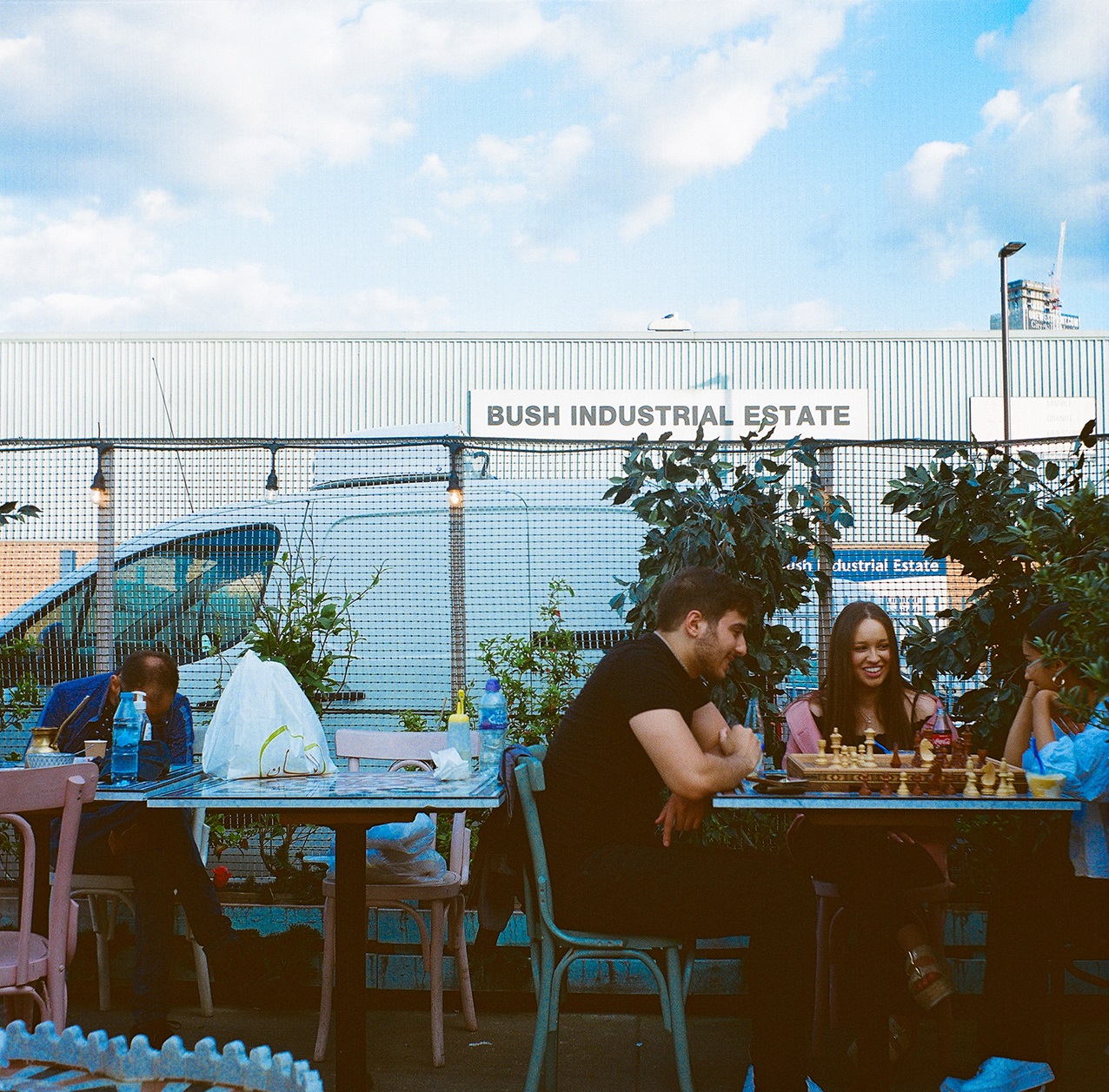
Photographs: Sana Badri (Courtesy of Pipe Dreams, Shubbak Festival 2021)
What experience does Levant Book Cafe give its visitors?
Everything in our shop is carefully selected and placed. Nothing is displayed by accident, from the trinkets hanging from the shelves to the quotes painted on the cafe walls— it’s all by design and carries meaning. For instance, we have a quote painted on our wall which says: لك شيء في هذه احلیاة فقم Meaning: “There’s something in life for you, so get up” It’s a quote by Maya Ghazal, who at 21 years old became the world’s first female Syrian refugee pilot. She came to visit the book café and we’re big fans of her, because she is an example of positivity and determination in the face of adversity.
Every quote painted on our walls has a story behind it. We’ve found that a lot of our customers will bring their children, who have never been to Damascus, to the book cafe, to show them their cultural origins. The design and decoration of the book cafe is intentional and representative of Levantine culture and history. For instance, we have a mirror in the book cafe where the frame is encrusted with seashells – it’s a traditional hand-crafted piece of furnishing you’d generally only see in Damascus. The fountain in our cafe is also handcrafted, using marble – I crafted it myself! Another example of intentional decorations is our stained glass windows— if you ever walk through the roads and buildings of Ash-Sham (the Old City of Damascus), the first thing you’d notice would be the brightly coloured glass windows framed with wood painted in a luminous baby blue. We have these exact same windows installed in the book cafe, so that you feel like you’re in Ash-Sham. But as well as providing a space that represents Syrian culture, we also serve a number of Syrian products such as Damascus ice cream.
What makes the Damascus ice cream you serve different to the ice cream you can get from the shops?
The ice cream is made using an ancient traditional Syrian technique— the people of Damascus used to collect snow from Jabal Al-Shaykh (also known as Mount Hermon), which is a mountainous region between Syria and Lebanon. Snow could be found there all year round. Using the collected snow, a specific set of ingredients laid out in an ancient recipe would be added to the mix. You wouldn’t be able to find this sort of ice cream anywhere else in the world. It truly is a unique export of Damascus — you’ll find imitations of the ice cream in Turkey (as a result of the historical Ottoman Empire rule over Syria), but its cultural origins start in Damascus! The ice cream we serve is all hand-made, using the same ancient recipe and the same organically-sourced ingredients that have been used for generations. The technique is pretty difficult to master as there are a multitude of factors you must be wary of when making the ice cream, such as the amount of an ingredient used, the time and temperature of when they’re added etc. it requires a lot of dedication and effort to master. The ingredients used are fundamental to making the perfect Damascus ice cream— our ice cream is approximately 90% fruit and 10% Qishtuh (cream of milk). We don’t add artificial flavourings or colour into our ice cream, it’s all natural. And the pistachio we use in our ice cream is of the highest quality from Gaziantep, Turkey. It’s more expensive to source, but it’s naturally very fresh and green, and the taste is genuinely incredible. We have a machine here which is specifically designed to replicate the cold mountainous conditions that creates the ice cream too. This machine is only manufactured in Damascus, so we had it imported all the way from Syria to London.
Levant Book Cafe also has a wall full of books, it’s pretty unique for a cafe to have a library. What was the idea behind that?
In London, it’s very difficult to find Arabic books and libraries— and we’re a community of people who love reading.
